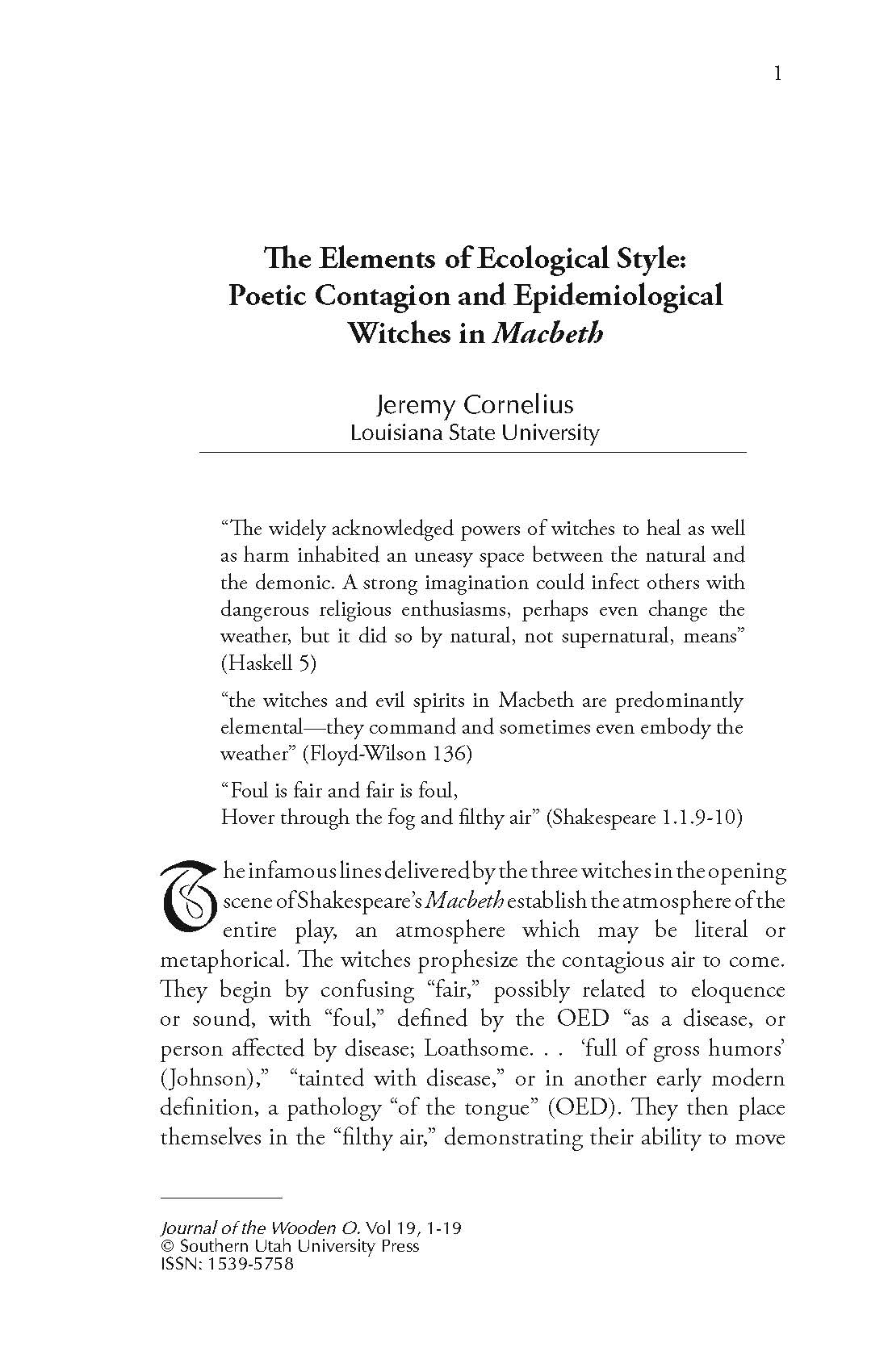The Elements of Ecological Style: Poetic Contagion and Epidemiological Witches in Macbeth
Main Article Content
Abstract
The infamous lines delivered by the three witches in the opening scene of Shakespeare’s Macbeth establish the atmosphere of the
entire play, an atmosphere which may be literal or metaphorical. The witches prophesize the contagious air to come. They begin by confusing “fair,” possibly related to eloquence or sound, with “foul,” defined by the OED “as a disease, or person affected by disease; Loathsome. . . ‘full of gross humors’ (Johnson),” “tainted with disease,” or in another early modern definition, a pathology “of the tongue” (OED). They then place themselves in the “filthy air,” demonstrating their ability to move through a “foul” and “fair” environment both in the play and in the political landscape of Scotland, a connection suggested by the rhyming couplet. As they eventually “vanish into air,” their prophecy circulates throughout the air, its unseen force manifested through Macbeth’s ambitious actions. To read these lines ecomaterially calls attention to the miasmic air of the play. These lines encapsulate one running theme of the play: the dualism of terms signifying morality and contagious air. The play’s formal elements echo this theme of turning morality upside down as ecologically metaphorized by birds flipping in mid-flight and horses turning violent and cannibalistic after Duncan’s murder “as they would / Make war with mankind” (2.4.17-18).1
